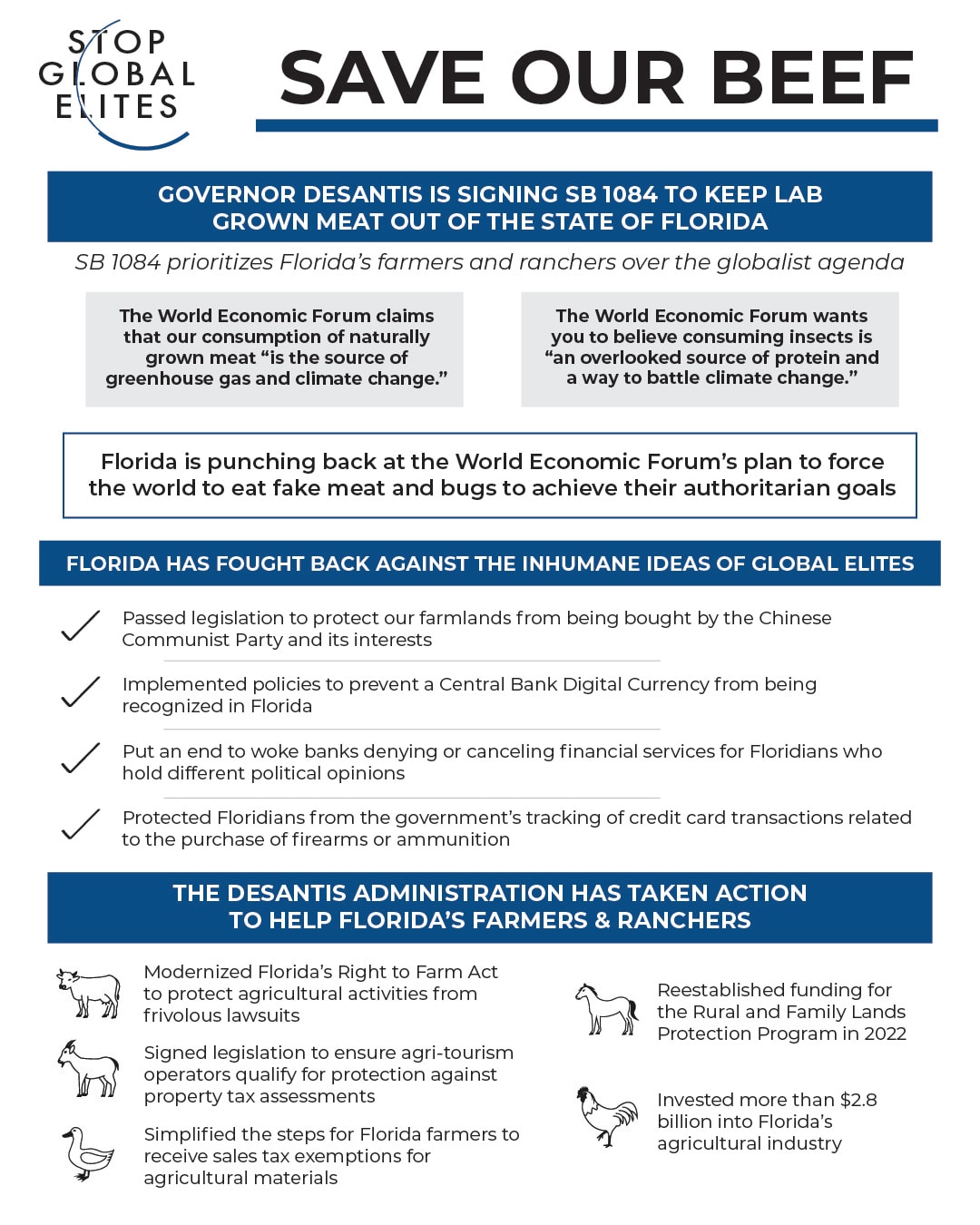This was ~three weeks ago, so I'm a little surprised I couldn't already find anything about it on the forum. Maybe I'm just bad at searching?
Anyway, Ron DeSantis posted the following around the same time as the Florida ban:
https://twitter.com/GovRonDeSantis/status/1785684809467011431

I suspect the real motivations are more ordinary protectionism, but it seems like potentially a sign that cultivated meat might start getting politicized / embroiled in the broader culture war, though also (perhaps surprisingly) DeSantis has had supportive comments from a Democratic senator (see Vox again).
I'm interested in the extent to which alt-meat startups and policy folk were surprised by this move – whether this represents a more hostile environment than we expected, or whether this was "already priced in". I tried to look at stock prices, but based on some quick searches only found one publically-traded cultivated meat stock STKH, and don't understand enough about the process of when the bill's passing became inevitable to really interpret it.
(Link preview image is bull grayscale photo by Hans Eiskonen)

I think there is a very strong right-wing case to be made for alt proteins, i.e, “This is an example of how private businesses can solve climate change via capitalism and innovation”, and alt protein advocates should be making this case inside right wing political parties.
Or simply "the government has no right to tell people what food they are allowed to buy on the free market". They don't need a reason, that's the whole point of freedom.
I agree this would be appealing to intellectually consistent conservatives, but this seems like a bad meme to be spreading/strengthening for animal welfare. Maybe local activists should feel free to deploy it if they think they can flip some conservative's position, but they will be setting themselves up for charges of hypocrisy if they later want to e.g. ban eggs from caged chickens.
I feel this might be stronger than the climate change argument, when (like Ben said) so many republicans don't take climate change seriously
Only works on people who believe that climate change is real! These days you'll at least see a lot of equivocation on that from Republicans. See also Environmentalism in the United States Is Unusually Partisan.
When advocating that governments invest more in alt proteins, the following angles are typically used:
I understand the latter two are generally popular with right-wing governments; either of these two positions can be advanced without referencing climate at all (which may be preferable in some cases for the reasons Ben outlines)
The second two points don’t seem obviously correct to me.
First, the US already has a significant amount of food security, so its unclear whether cultivated meats would actually add much.
Second, If cultivated meats destroy the animal agriculture industry, this could very easily lead to a net loss of jobs in the economy.
Do you have any sense of how they play against the concerns of the much more powerful food & agriculture lobby?
I'm working from brief conversations with the relevant experts, rather than having conducted in-depth research on this topic. My understanding is:
I guess in either case it's possible for the food/agriculture lobby to nonetheless recognise that alt proteins could be a threat to them and object. I don't know how common it is for this actually happen.
Yes in a purely rational world :P
I can confirm that there exists at least NGO who has this type of risk on their radar. I don't want to say too much until we have gone through the appropriate processes for publishing our notes from speaking with them.
If any donors want to know more, feel free to reach out directly and I can tell you more.
I was surprised to learn from GFI's 2023 State of Global Policy report that "Uruguay, through a quiet amendment to a budget bill passed in October, banned the “importation, manufacture and commercialization” of cultivated meat for human consumption in the country for a period of five years".
My understanding is that Uruguay, Italy, Florida and Alabama now have cultivated meat bans, with Italy's held up by the EU. I believe the Uruguayan ban is the only one with a sunset clause.